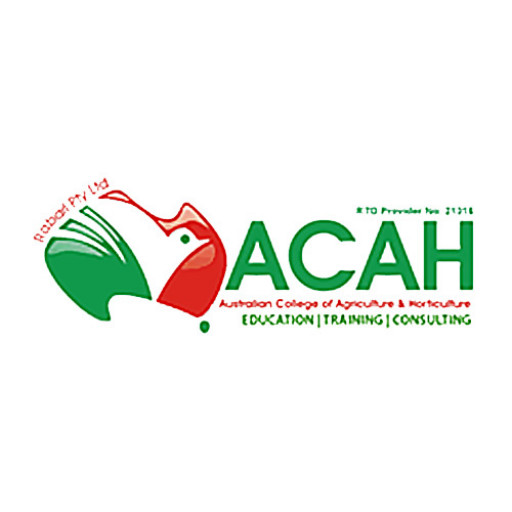Production Horticulture at the Australian College of Agriculture & Horticulture is a comprehensive program designed to equip students with the essential skills and knowledge required for a successful career in the horticultural industry. This program provides a detailed understanding of the cultivation, management, and sustainable production of horticultural crops, including fruits, vegetables, flowers, and ornamental plants. Students will learn about modern agricultural techniques, plant science, pest and disease management, soil health, irrigation methods, and farm management practices. The curriculum combines theoretical knowledge with practical hands-on training, allowing students to gain real-world experience through extensive industry placements and on-campus facilities. Emphasis is placed on sustainable practices and innovative technologies, ensuring graduates are prepared for the evolving demands of the horticulture sector. The program aims to develop competent professionals capable of contributing to agricultural productivity, environmental sustainability, and the supply of high-quality horticultural products. Upon completion, graduates can pursue careers in production farming, farm management, horticultural consultancy, research, and various roles within agribusiness enterprises. The Australian College of Agriculture & Horticulture is committed to providing a supportive learning environment with expert tutors, modern facilities, and industry connections that foster student success. Whether students are seeking to enter the workforce directly or to further their education, the Production Horticulture program offers a solid foundation to achieve their career goals in this vital industry.
Production Horticulture at the Australian College of Agriculture & Horticulture is a comprehensive program designed to equip students with the practical skills and theoretical knowledge necessary for a successful career in the horticulture industry. This course covers a wide range of topics, including the cultivation and management of various horticultural crops such as fruits, vegetables, herbs, and ornamental plants. Throughout the program, students gain hands-on experience in modern horticultural practices, soil management, pest and disease control, irrigation systems, and sustainable farming techniques. The curriculum is structured to provide a strong foundation in plant science, including plant biology, reproductive biology, and physiology, enabling students to understand the growth needs and lifecycle of different plants.
Students will also explore industry-specific areas such as crop scheduling, harvest management, post-harvest handling, and marketing, preparing them to effectively manage operations in commercial horticulture settings. The program emphasizes sustainability and environmental responsibility, teaching students how to implement eco-friendly practices that conserve resources and promote biodiversity. Practical training is integrated throughout the course, with hands-on sessions conducted in state-of-the-art nurseries, greenhouses, and fields, giving students real-world experience in plant propagation, pest management, and machinery operation.
In addition to technical skills, the program develops critical thinking, problem-solving, and communication abilities, which are essential for teamwork and leadership roles within the horticulture sector. Students have access to industry placements and internships, providing valuable networking opportunities and practical insights into current industry practices. Upon completion, graduates are well-prepared to pursue careers in commercial horticulture, landscape management, farm management, or start their own horticultural businesses. The Production Horticulture program at ACACH is committed to producing industry-ready professionals who are knowledgeable, innovative, and dedicated to advancing sustainable horticultural practices.
Program requirements for the Production Horticulture program typically include the completion of specified coursework, practical training, and assessment criteria. Students are generally expected to complete core units that cover fundamental areas such as plant propagation, pest and disease management, soil health, irrigation techniques, crop management, and sustainable horticultural practices. Additionally, elective units may be offered to allow students to specialize in areas like orchard management, vegetable production, or landscape horticulture, depending on the program offerings.
Participation in practical workshops and supervised fieldwork is a crucial component, providing hands-on experience with modern horticultural techniques, machinery operation, and crop management systems. Students must demonstrate competency through assessments that may include written tests, practical demonstrations, project work, and possibly a final capstone project or comprehensive exam. Graduation prerequisites generally encompass achieving a minimum grade point average, successful completion of all required units, and fulfilling attendance and participation requirements during practical sessions.
The program is designed to equip students with the technical skills and knowledge necessary for a career in the production horticulture industry, emphasizing sustainable and innovative practices aligned with industry standards. Furthermore, students might be required to adhere to specific admission criteria such as prior educational qualifications, relevant industry experience, or prerequisite coursework. English language proficiency certificates may also be necessary for international applicants. Overall, the program aims to develop graduates who are competent in managing horticultural production systems efficiently and sustainably, prepared to pursue employment or further study in the horticultural sector.
The Production Horticulture program at the Australian College of Agriculture & Horticulture offers various financing options to support students throughout their studies. Students may access government-funded schemes such as the Commonwealth Supported Place (CSP) or student loans through the Higher Education Loan Program (HELP), which can cover tuition fees for eligible applicants. For domestic students, the college often participates in state-based subsidies or grants aimed at encouraging careers in agriculture and horticulture sectors, making education more accessible and affordable. International students are generally required to pay full tuition fees upfront or through installment plans offered by the college, with some scholarships available based on merit or specific criteria. The college also collaborates with industry partners that may provide bursaries, sponsorships, or financial incentives to students enrolled in horticulture-related courses, aligning their training with sector workforce needs. Students are encouraged to consult the college’s financial aid office for detailed information about available funding, scholarships, and payment plans suited to their circumstances. Payment options typically include lump-sum payments, installment plans, or deferred payment arrangements where applicable. The college aims to facilitate financial accessibility for students committed to developing their skills in production horticulture, ensuring that financial barriers do not hinder educational advancement. As part of their commitment to student support, the institution provides guidance on applying for federal and state funding, managing course fees, and understanding the financial commitments involved in completing the program. Overall, the financing studies at the Australian College of Agriculture & Horticulture are designed to help a diverse range of students pursue their career goals in horticulture by providing flexible, accessible, and transparent funding opportunities.
Production Horticulture at the Australian College of Agriculture & Horticulture provides students with comprehensive training in the cultivation and management of horticultural crops. The program emphasizes practical skills and theoretical knowledge necessary for careers in the production of fruits, vegetables, ornamental plants, and other horticultural commodities. Students gain hands-on experience in modern horticultural techniques, pest and disease management, soil health, crop nutrition, irrigation systems, and sustainable farming practices. The curriculum is designed to prepare graduates for work in various sectors including commercial horticulture farms, nursery businesses, and agribusiness management.
Throughout the course, students explore topics such as plant propagation, crop planning, harvesting, storage, and marketing. They are also introduced to the latest innovations in horticultural technology, including greenhouse management, hydroponics, and integrated pest management strategies. The program often includes work placements or industry projects, facilitating real-world learning and employment opportunities after graduation. Emphasis is placed on sustainable and environmentally friendly farming practices to ensure long-term productivity and ecological balance.
The Australian College of Agriculture & Horticulture is known for its practical approach, integrating classroom learning with practical farm-based activities. The program is suitable for individuals seeking to develop specialized skills in horticulture, whether they are aspiring commercial growers or existing industry professionals seeking to upgrade their knowledge. Graduates of the program are equipped to efficiently manage production operations, improve crop yields, and implement innovative solutions to industry challenges. This qualification helps open doors to employment within Australia's vibrant horticultural industry, a key sector of the agricultural economy.





